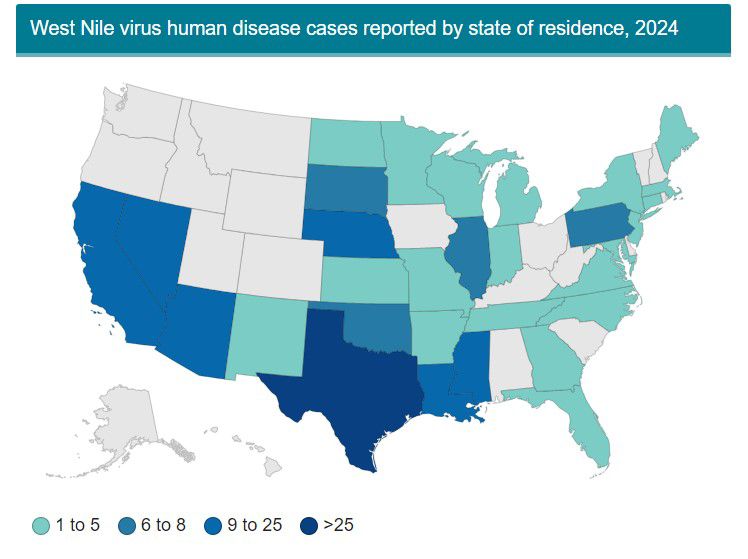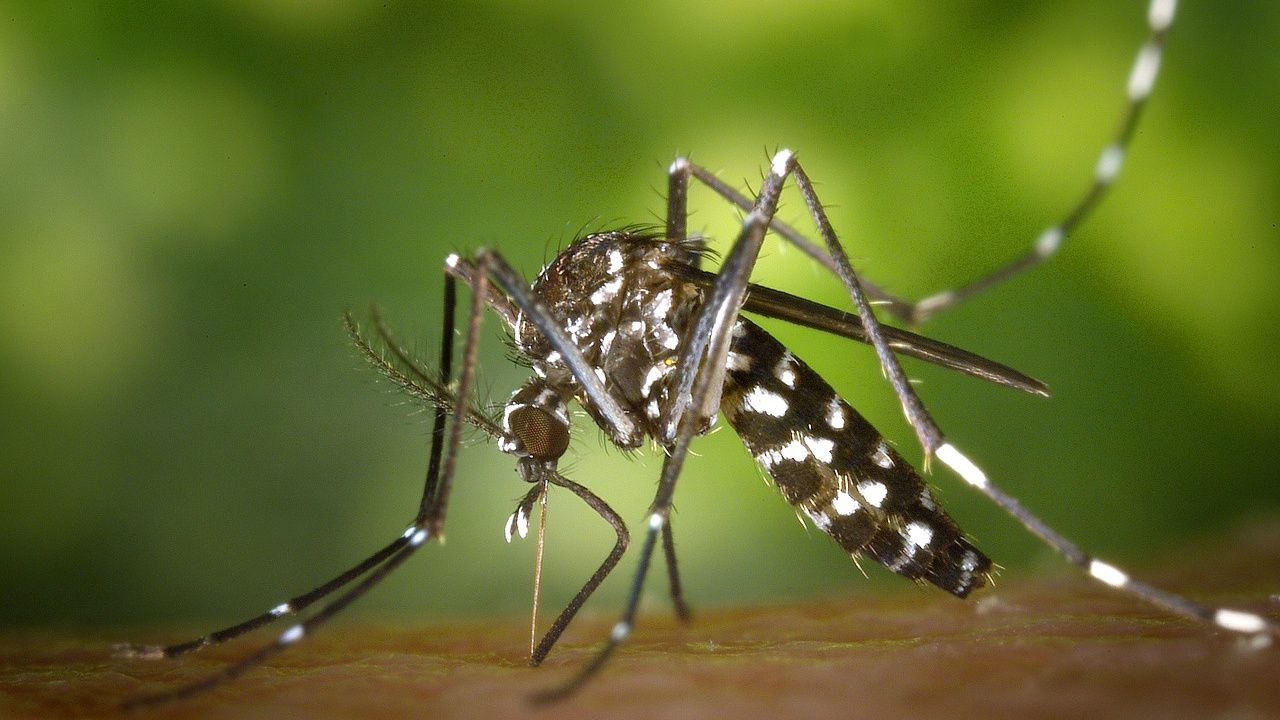It's the most common time of year to become infected with West Nile virus from a mosquito bite, and several cases have already been reported in North Carolina, according to health officials.
Columbus County has seen three cases of West Nile virus since mid-July, according to county health officials. These have been the only cases reported in the state so far this year, according to the CDC.
The people infected with the virus were hospitalized and survived.
A case of West Nile virus was also reported by health officials in Rock Hill, South Carolina, not far from Charlotte.
West Nile virus (WNV) is described by The North Carolina Department Health and Human Services as a mosquito-borne virus that can cause serious, life-altering disease or death. People get WNV through the bite of an infected mosquito. In a very small number of cases, the virus has been spread through blood transfusions, organ transplants, breastfeeding and, during pregnancy, from mother to baby, NCDHHS said. It is not spread through person-to-person contact.

"This is more than the average number of [WNV] cases normally reported at this time of year," officials with the Columbus County Health Department said.
Most people infected with the virus have no symptoms, according to the Centers for Disease Control and Prevention. Only about one in five people will experience symptoms, which include:
- Headache
- Body ache
- Joint pain
- Vomiting
- Diarrhea
- Rash
About one in 50 people infected with the virus will develop a severe illness, according to health officials, which affects the central nervous system through inflammation of the brain or meningitis. The illness is called neuroinvasive disease.
La Crosse encephalitis is another mosquito-borne virus in North Carolina. Health experts say about 20 neuroinvasive cases of the virus are reported in the western part of the state each year. "There is always a small risk of contracting eastern equine encephalitis in the eastern counties," health officials said.
To avoid contracting a mosquito-bourne illness, health officials recommend:
- Using mosquito repellent that contains DEET when outside in areas where mosquitoes might be, but use caution when applying to children (visit epa.gov to find a repellent that works for you and your family)
- Wearing long sleeves or long pants when outside
- Use window and door screens at home
- Close doors to the home and garage
- Use air conditioning when possible
- Reduce mosquito breeding by emptying standing water from flower pots, gutters, buckets, pool covers, pet water dishes, discarded tires and birdbaths (at least once a week)
"This is a reminder that West Nile virus transmission is active in the late summer and autumn months," Columbus County Health Director Kim Smith said. "We urge residents to protect themselves from mosquito bites, and local governments to implement integrated mosquito management methods for mosquito control."
The South Carolina Department of Public Health is spraying mosquitoes in a 1-mile radius of Rock Hill's Constitution Boulevard, Westerwood Drive and Fargo Street following the case of West Nile virus.
Talk with your health care provider if you think you or a family member might have West Nile virus.
Related links: State surveillance summary of reported West Nile virus cases | West Nile virus | Mosquito bite prevention





